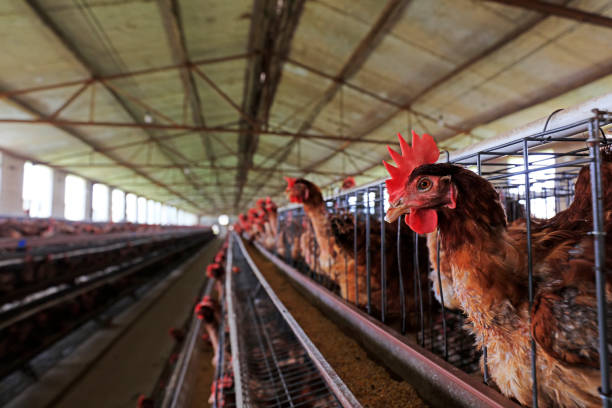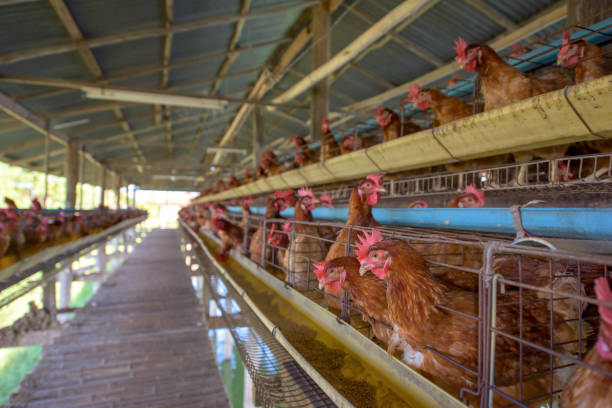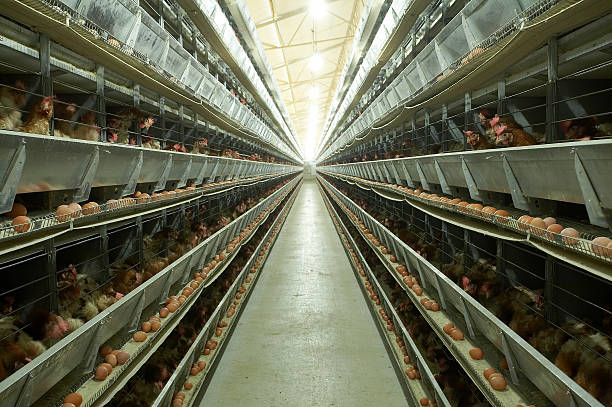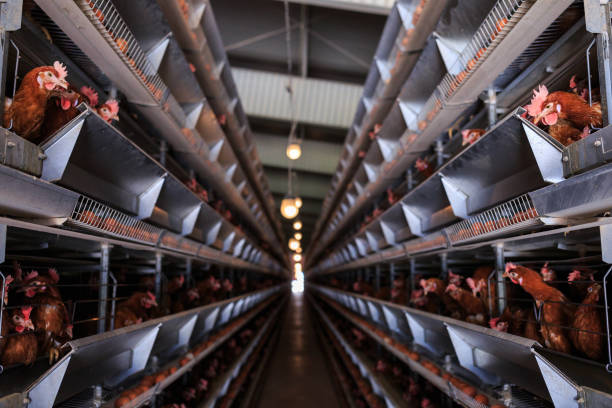
Best Price Poultry Cage Systems: Quality and Value Combined
Best Price Poultry Cage Systems: Quality and Value Combined
For poultry farmers looking to maximize efficiency and profitability, selecting the right poultry cage system is paramount. Balancing quality with cost-effectiveness is the key to a sustainable and thriving operation. This article explores how to identify poultry cage systems that offer the best price without compromising on essential features, durability, and the well-being of your birds. We’ll delve into different types of cage systems, materials, factors influencing pricing, and strategies for making informed investment decisions.
**Understanding Poultry Cage Systems**
Poultry cage systems provide a controlled environment for raising chickens, offering several advantages over traditional free-range methods. These benefits include increased space optimization, improved disease control, easier egg collection, and reduced labor costs.
*Battery Cages:* These systems typically consist of rows and tiers of cages, housing multiple birds in each cage. Battery cages are designed for maximum space utilization, making them ideal for large-scale operations. Manure removal is often automated, further reducing labor. However, battery cages have faced criticism due to concerns about animal welfare.
*Layer Cages:* Designed specifically for egg-laying hens, layer cages feature sloped floors that facilitate easy egg collection. These cages often include feeding and watering systems to ensure the birds have constant access to resources. Layer cages come in various sizes and configurations to suit different farm sizes.
*Broiler Cages:* Broiler cages are engineered for raising meat chickens. They provide ample space for the birds to move and grow comfortably. These cages are designed to facilitate efficient feeding and watering, promoting rapid weight gain and optimal meat production.
**Key Features of a Quality Poultry Cage System**
While seeking the best price is important, it’s crucial to ensure that the chosen cage system meets certain quality standards. A high-quality system will not only last longer but also contribute to the overall health and productivity of your flock.
*Durable Construction:* The materials used in the construction of the cage system should be strong and resistant to corrosion. Galvanized steel is a popular choice due to its durability and resistance to rust and wear. The framework should be sturdy enough to withstand the weight of the birds and the stresses of daily use.

*Proper Ventilation:* Adequate ventilation is essential for maintaining a healthy environment within the cages. A well-ventilated system helps to reduce the buildup of ammonia and other harmful gases, preventing respiratory problems and promoting overall bird health.
*Easy Access to Food and Water:* The design should provide easy and consistent access for the chickens to feed and water. Ensure that feeding and watering systems are accessible to all birds in the cage. Automatic feeding and watering systems can further reduce labor costs.
*Easy Cleaning and Maintenance:* Efficient cleaning and maintenance are essential for controlling disease and maintaining hygiene. A well-designed system will allow for easy removal of manure and other waste materials. Smooth surfaces and accessible components simplify the cleaning process.
*Bird Comfort and Welfare:* While maximizing efficiency, the well-being of the birds should always be a priority. Cages should provide adequate space for the chickens to move, stand, and stretch their wings. Smooth, rounded edges can help to prevent injuries.
**Factors Influencing the Price of Poultry Cage Systems**
The price of poultry cage systems can vary widely depending on several factors. Understanding these factors can help you make an informed decision and find the best value for your investment.
*Materials:* The type of materials used in the construction of the cage system has a significant impact on the price. Galvanized steel is more expensive than non-galvanized steel, but it offers superior durability and corrosion protection. Stainless steel is the most expensive option, offering the highest level of durability and hygiene.
*Size and Capacity:* The size and capacity of the cage system directly influence the price. Larger systems with a higher bird capacity will typically cost more than smaller systems. The number of tiers and rows also affects the price.
*Automation:* Automated systems, such as automatic feeding, watering, and manure removal, tend to be more expensive than manual systems. However, automation can significantly reduce labor costs and improve efficiency in the long run.

*Manufacturer Reputation:* The reputation of the manufacturer can also influence the price. Established manufacturers with a proven track record of quality and reliability may charge more for their products.
*Customization:* Customized cage systems that are tailored to specific needs and requirements will typically cost more than standard, off-the-shelf systems.
*Transportation Costs:* Transportation costs can vary depending on the distance and mode of transportation.

**Finding the Best Price Without Sacrificing Quality**
Finding the right balance between price and quality is essential for maximizing the return on your investment in poultry cage systems. Here are some strategies to consider when making your purchase.
*Research and Compare:* Conduct thorough research and compare prices from different suppliers. Look for suppliers with a reputation for quality and reliability. Read reviews and testimonials from other poultry farmers to get a better understanding of their experiences.
*Consider Used or Refurbished Systems:* Used or refurbished cage systems can be a cost-effective alternative to buying new. However, it’s important to inspect the system carefully to ensure that it is in good condition and meets your requirements. Check for any signs of damage or wear and tear, and inquire about the maintenance history of the system.
*Look for Discounts and Promotions:* Many suppliers offer discounts and promotions on poultry cage systems at various times of the year. Keep an eye out for these offers and take advantage of them when possible.
*Negotiate with Suppliers:* Don’t be afraid to negotiate with suppliers to get the best possible price. Explain your budget constraints and ask if they can offer any discounts or special deals.
*Prioritize Essential Features:* Focus on the essential features that are most important for your operation. For example, if you prioritize durability and corrosion resistance, invest in a cage system made from galvanized steel.
*Consider Long-Term Costs:* Don’t just focus on the initial purchase price; consider the long-term costs of owning and maintaining the cage system. A cheaper system may require more frequent repairs and maintenance, leading to higher overall costs in the long run.
**Making the Right Investment Decision**
Investing in a poultry cage system is a significant decision that can have a major impact on the success of your poultry farm. By carefully considering the factors outlined above, you can make an informed decision and find the best price without compromising on quality, durability, and the well-being of your birds. Remember to prioritize essential features, compare prices from different suppliers, and consider the long-term costs of owning and maintaining the system. By doing so, you can ensure that your investment in poultry cage systems will deliver long-term value and contribute to the profitability and sustainability of your poultry operation.
**The Future of Poultry Cage Systems**
The poultry industry is constantly evolving, and so are poultry cage systems. Future trends point towards more sustainable and animal-friendly designs. This includes:
*Enriched Cages:* Providing more space and enrichment items like perches and dust baths helps alleviate concerns surrounding bird welfare.
*Automated Monitoring:* Utilizing sensors to monitor bird health, environmental conditions, and productivity can help optimize management practices.
*Data-Driven Insights:* Analyzing data collected from automated systems allows for better decision-making regarding feeding, health, and overall flock management.
By staying informed about these innovations, poultry farmers can future-proof their operations and ensure their cage systems meet evolving standards and consumer demands.
**Working with Livi Machinery for Your Poultry Cage Needs**
Choosing the right poultry equipment supplier is as important as selecting the right cage system. A reliable supplier will offer not just competitive prices but also expert advice, excellent customer service, and ongoing support. Livi Machinery is committed to providing poultry farmers with high-quality cage systems that balance affordability with performance and bird welfare and have rich experience will give you the most professional advice.
